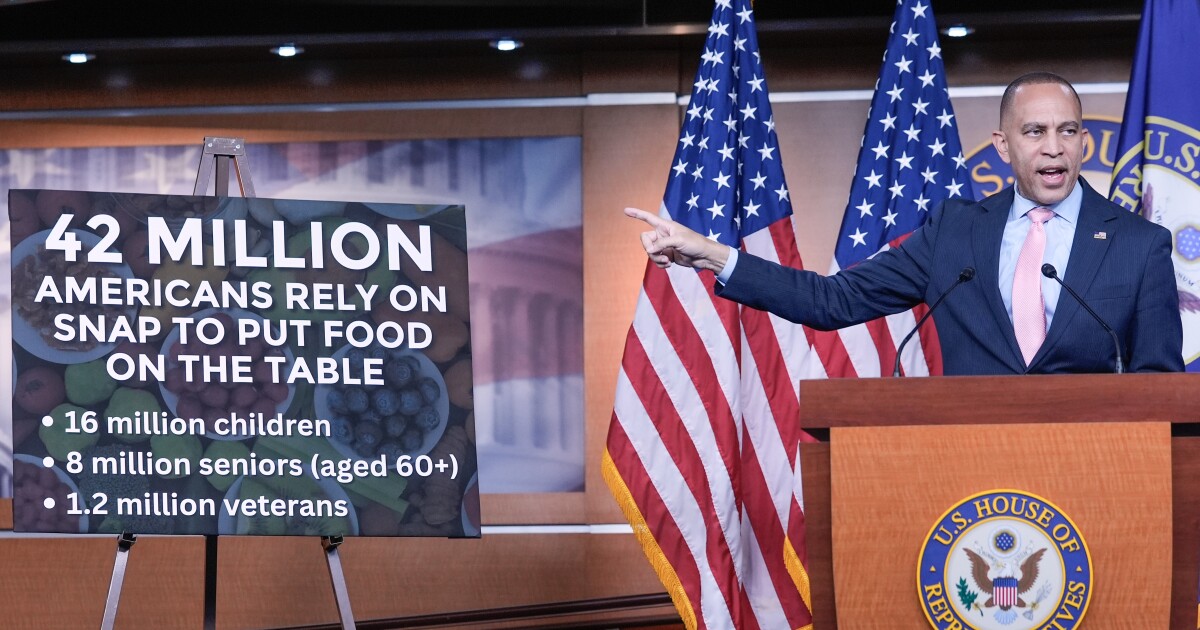Trump Calls for Filibuster End to Resolve Ongoing Government Shutdown
- Better American Media

- 15 minutes ago
- 3 min read

Trump Advocates for Filibuster Elimination During Government Shutdown
In a move to expedite the reopening of the federal government, former President Donald Trump is calling on the Senate to eliminate the filibuster. This change would allow the Republican majority to work around Democratic opposition amid the ongoing government shutdown that commenced with the new fiscal year on October 1.
Trump posted on Truth Social, urging senators to “INITIATE THE ‘NUCLEAR OPTION,’ GET RID OF THE FILIBUSTER.” The filibuster, a procedural hurdle in the Senate, requires 60 votes to overcome, making it difficult for the Republican majority to enact legislation without bipartisan cooperation.
Trump's proposition for abolishing this long-standing Senate practice could fundamentally alter how legislative negotiations are conducted. His reflection on this decision occurred while returning from an Asian diplomatic trip, where he spoke with leaders from Malaysia, Japan, South Korea, and China. Trump indicated that international figures were puzzled as to why "powerful Republicans allow" Democrats to trigger a government shutdown.
As discussions among lawmakers continue, uncertainty looms over Trump's proposal and whether lawmakers will engage in negotiations with Democrats. House Speaker Mike Johnson and other Republican leaders are also advocating for a resolution to the shutdown.
Impact of the Shutdown
The repercussions of the government closure are increasingly noticeable across the nation. In Alaska, residents are preparing for winter, stockpiling food resources such as moose and fish, while they await federal food aid from the SNAP program. Similarly, in Maine, locals are filling their heating oil tanks but facing delays in receiving federal subsidies.
Amid the shutdown, travel disruptions are reported, with flight delays affecting holiday travelers, employees not receiving paychecks, and rising costs in healthcare premiums adding to public distress. Senator Lisa Murkowski from Alaska remarked, “People are stressing,” highlighting growing concerns over food shortages in her state.
The imminent expiration of SNAP funding threatens to exacerbate food insecurity, impacting approximately one in eight Americans.
Military Funding Versus Food Aid
While the Biden administration has redirected funds to ensure military personnel are compensated, food assistance programs remain unfunded. Notably, Trump's prior measures have already led to substantial cuts to the Supplemental Nutrition Assistance Program, which could affect about 2.4 million beneficiaries.
As the opening of health insurance enrollment approaches on Saturday, many Americans are faced with rising premium costs, contributing to the overall strain during the shutdown. Advocacy groups express concern, with Rev. Ryan Stoess stating, “We are holding food over the heads of poor people so that we can take away their health care.”
Prolonged Shutdown Risks
The House has not convened under Speaker Johnson for the past month, and senators are poised to depart for a long weekend, raising the likelihood that the current shutdown could extend well into the following week, potentially marking it as one of the longest in U.S. history.
The outcomes of upcoming off-year elections—including pivotal races in New York City and gubernatorial elections in Virginia and New Jersey—may lead to renewed negotiations among congressional leaders after the voting period ends. Senator John Thune, the Senate Majority Leader, expressed hope that these elections will encourage bipartisan efforts to resolve the shutdown.
Republican Stance on SNAP Cuts
As the majority party, Republicans find themselves defending furloughed workers and closed federal programs against the backdrop of significant funding reductions they previously championed. The looming food assistance cuts are symptomatic of a broader shift in policy, while Democratic leaders criticize Republican strategies they view as leveraging food aid for political ends.
House Democratic Leader Hakeem Jeffries remarked, “We are trying to lift up the quality of life for the American people,” emphasizing his party's commitment to mitigating the effects of the shutdown on vulnerable populations.
Despite attempts by Republicans to present new work requirements for programs like SNAP as a means to eliminate misuse, the political landscape remains contentious, with negotiations on healthcare subsidies also on the table for post-shutdown discussions.

